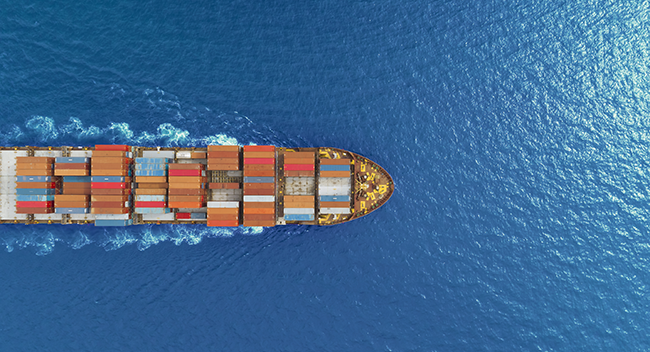Government inquiry that may affect the Swedish tonnage tax regime
 ‹ Back to the articles
‹ Back to the articles
In 2016, Sweden introduced its tonnage tax regime, which has been available for fiscal years since 2017. Recently, the Swedish government appointed an inquiry to investigate and propose strategies to enhance the competitiveness of the country´s shipping industry and bolster its readiness for major crises. The inquiry´s assignment includes evaluating and proposing improvements to the Swedish tonnage tax regime.
Tonnage tax - a standard basis taxation applicable for shipping companies
Tonnage tax regime is a special tax regime, relevant for the shipping industry. The tax regime implies, provided that certain requirements are met, can choose to be taxed on a standard basis based on the cargo capacity of their vessels, instead of being taxed on their actual results. Tonnage tax regimes have for long been available in other shipping intensive countries. Tonnage tax has existed for a long time in many other maritime nations. Just to mention one country, Denmark has had a tonnage tax system in place since 2001, while it took until 2017 for Sweden to introduce one.
The purpose of introducing a Swedish tax regime was to give Swedish shipping companies competitive conditions that were equivalent to the conditions for shipping companies in Sweden’s neighbouring countries and to increase the proportion of Swedish-flagged vessels.
Assigned to develop the tonnage tax regime
The proportion of Swedish-flagged vessels is today so low that Sweden, in case of crisis, risks not being able to provide sufficient food, energy and other vital raw materials. This was written by the Swedish minister of infrastructure, Andreas Carlson, in a debate article (in swedish) published in Göteborgs-Posten in June 2023.
Against this background, a Government inquiry has been appointed that aims to strengthen the competitiveness of the Swedish shipping industry. The assignment includes evaluating and proposing how to develop the tonnage tax regime. Furthermore, it includes analysing whether there are reasons to abolish stamp duty when granting an application for mortgage on vessels. Corresponding stamp duty does not exist in for example Denmark, Norway, Finland and the Netherlands. The Government inquiry should publish its report on the 29th of December 2023.
Comment
In the Government bill that preceded the Swedish tonnage tax regime in 2016, the government indicated an intention to follow up and evaluate the effects of the current legislation. It has now been six years since the Swedish tonnage tax system was introduced and it is welcome news that an inquiry has been appointed.
We know that several of our neighbouring countries have tonnage tax regimes with wider scope of applications than the Swedish one and that there are actions which could be taken to make the Swedish tonnage tax regime more competitive. Adjustments of the Swedish tonnage tax regime along with an abolition of the stamp duty could be important pieces of the puzzle to make Sweden a more attractive shipping nation and to get more vessels flagged in Sweden. We look forward to seeing what changes may be proposed.

Rebecka Fröjd & Ulrika Lundh Eriksson
Rebecka Fröjd and Ulrika Lundh Eriksson works at PwC’s office in Gothenburg with national and international corporate taxation focusing on transport, logistics and shipping.
Rebecka: +46 10 212 92 49,
rebecka.froejd@pwc.com
Ulrika: +46 10 213 14 17,
ulrika.lundh.eriksson@pwc.com

Leave a comment